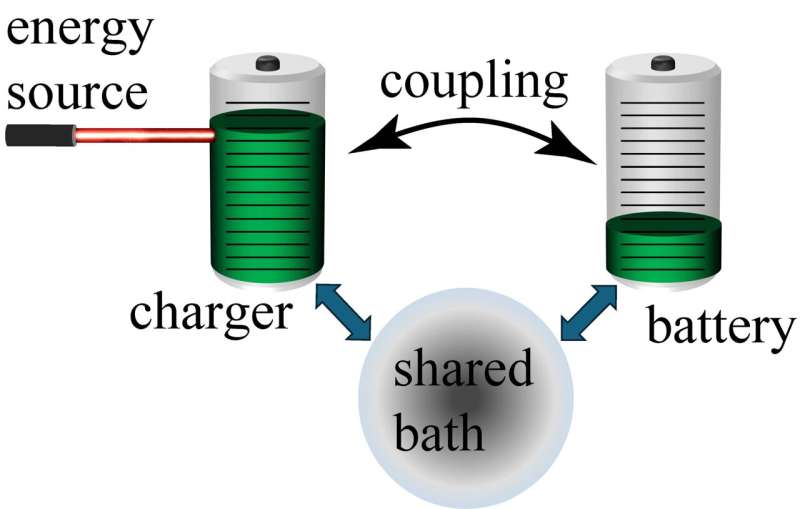Phys.org June 8, 2024
Nonreciprocity enables directional flow of signals and efficient noise suppression, constituting a key element in the architecture of current quantum information and computing systems. An international team of researchers (Poland, Canada) introduced nonreciprocity through reservoir engineering during the charging process resulting in a fourfold increase in battery energy compared to conventional charger-battery systems. This effect was observed in the stationary limit and remained applicable even in overdamped coupling regimes, eliminating the need for precise temporal control over evolution parameters. The result could be extended to a chiral network of quantum nodes, serving as a multicell quantum battery system to enhance storage capacity. According to the researchers their approach is straightforward to implement using current state-of-the-art quantum circuits, both in photonics and superconducting quantum systems and the concept of nonreciprocal charging has significant implications for sensing, energy capture, and storage technologies or studying quantum thermodynamics… read more. TECHNICAL ARTICLE
